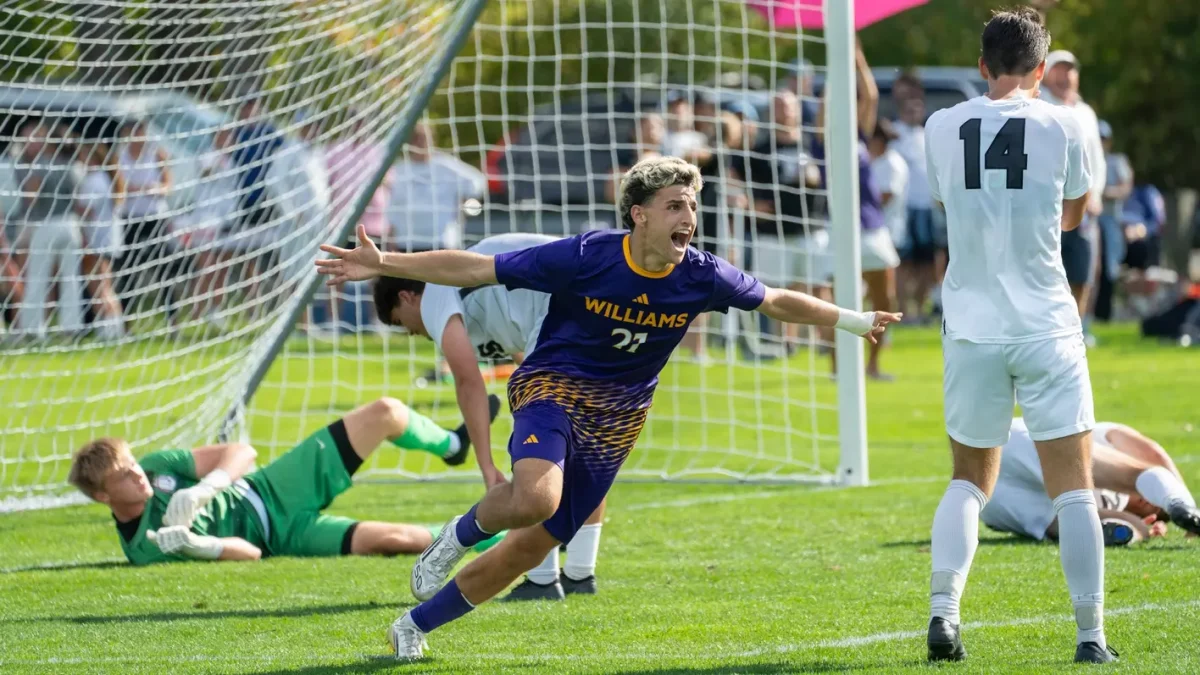COVID restrictions have negatively affected our school culture and mental health
January 26, 2022
As we enter the third year of the COVID-19 pandemic, the Williams experience has been fundamentally changed by the social restrictions imposed by the administration on our community. For many students, the strong communal bond idealized in admissions materials and alumni anecdotes were some of the main reasons why we were drawn to Williams. However, the personal and intimate Williams culture of pre-COVID times has been replaced with widespread feelings of isolation under the public health regime. COVID eradication has supplanted education and fostering community as the primary goal of our institution.
While listening to Williams alumni relate their experiences at the College during my Winter Study class, it became incredibly clear how Williams’ public health measures have isolated us from one another and weakened the bonds that used to define the Williams culture. I have come to understand that these connections are forged from quick interactions before the beginning of class, informal conversations in Sawyer, and friendly banter in dorm hallways. However, we are being robbed of these intimate personal connections that are essential to forming a community — forced to recede behind our face coverings and bunker down in the isolation of our rooms.
The most detrimental change in the Williams community is how fear has replaced trust as the dominant sentiment on campus. When students deviate from overly-restrictive public health policies, we devolve into an environment of secrecy. Peers are perceived as potential snitches and faculty and staff are made out to be COVID police. Student leaders such as Junior Advisors (JAs) and team captains have had to take on the burden of enforcing masking and COVID rules, engendering distrust among the campus communities in which they serve. COVID eradication policies lead us to turn against one another.
Forcing young people into endless social isolation has drastic consequences. Our country is now facing a widespread youth mental health crisis. College administrators across the nation are struggling to respond to the rapid increase in demand for mental health services among students as a result of their COVID policies. Nevertheless, the Williams administration refuses to significantly change its policies despite the direct link between its social restrictions and the mental health challenges facing its students. Our struggle is rendered a necessary cost in the battle against COVID.
But when two weeks become three months, which become three years, how can we retain hope for a better future that not even vaccination can ensure? When administrators impose antigen testing requirements contrary to the Center for Disease Control’s updated quarantine guidance and recommend scientifically unsupported outdoor masking, how can we maintain confidence in Williams’ public health policies? When students were expected to eat 42 straight meals alone for the first two weeks of Winter Study because of a prohibition on indoor unmasked interactions, how are we expected to happily comply in the vein of “protecting the community?”
Well, I don’t follow the rules and neither should you. My heart sinks for those who follow the rules for the sake of following the rules — like the students who asked Jim Reische if they had to wear a mask in the shower — rather than whether they believe the rules make any sense. We have been told over and over to sacrifice for the greater good, but what are we sacrificing for? The unvaccinated who won’t protect themselves?
Proponents of COVID restrictions in perpetuity argue that we must permanently alter our lives to protect the vulnerable such as the elderly or immunocompromised. However, they ignore how pharmaceutical innovations in vaccines and antiviral treatments like Paxlavoid and Molnupiravir drastically mitigate risk from COVID. Like the flu, eliminating all risk from COVID is impossible, but we cannot ignore the unacceptable social harms, especially on children and young people, created by restrictive COVID policies.
There will be no end to COVID; it is endemic and will be with us for the rest of our lifetimes. However, we cannot accept that there will be no end to the public health tyranny that governs every aspect of our lives at Williams. Williams’ micromanagement of college students’ social behaviors is incredibly frustrating, as all students cannot have unmasked social interactions in dorms, with the exception of their own private common room and bathroom. While our fully vaccinated community must hunker down under repressive restrictions, any individual in Berkshire County, regardless of vaccination status, can walk into Walmart unmasked, go to a crowded bar, or throw a large house party. If our state and municipal government does not prohibit these activities, why does Williams believe it necessary to transform itself into a public health enforcer? With few looking out for our interests, we as students must take action to protect the essence of Williams, the strength of its community, before it slips away from us.
To restore the culture of pre-COVID times, Williams must abandon its predominant focus on COVID eradication and recenter its goals around providing a rigorous education and fostering a unified community. Trusting vaccinated individuals to evaluate their own risks and make responsible decisions is paramount for strengthening our community ties and emerging from the isolation and internal tensions that define our current experience. Instead of dictating the social behaviors of its fully vaccinated student body, Williams must focus on the well-being of its students, which the College has neglected throughout its response to the pandemic.








